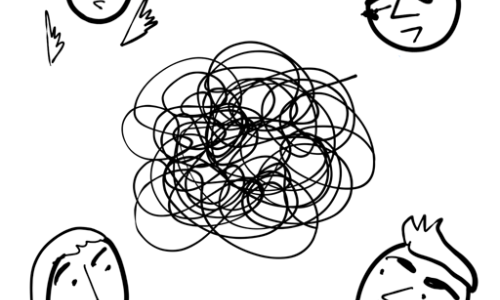October 2, 2017
Hello! My name is Heather Buchanan, and I am a second-year law student at the University of Colorado Law School in Boulder. I am thrilled to be attending the 6th Annual Educating Tomorrow's Lawyers Conference in Denver this Thursday, Friday, and Saturday (October 5–7). The theme of this year's conference is "Educating Tomorrow's Lawyers... to Serve Tomorrow's Clients," which will focus on client needs, improvements in delivering legal services, and—most importantly—ways to bring those concepts into law schools to better prepare the next generation of lawyers.
September 29, 2017
By now, the word is out that Judge Richard A. Posner is retiring from the 7th Circuit Court of Appeals. His retirement was unexpected, but his stated reasons for doing so shouldn’t be. In correspondence announcing his departure, Judge Posner sites apparent “difficulty” with his colleagues on the bench over the treatment of self-represented litigants as the motivation to leave the bench. A prompt response from Chief Judge Diane P. Wood, also on the 7th Circuit Court of Appeals, countered Judge Posner’s claim by stating, in part, “the judges and our staff attorneys take great care with pro se filings.” Judge Posner’s point, though, is more indicative of the entire justice system than a particular court and its staff attorneys.
September 28, 2017
Russell has been with IAALS from the first moment. He came to us at the recommendation of Judge Richard Matsch of the Federal District Court in Denver. Russell had just left his position as Deputy Director of the Federal Judicial Center and joined the Brookings Institution’s Governance Studies Program. Judge Matsch told me that if we could get Russell on our Board, we would have won the lottery. And indeed, we did. Russell has been our secret weapon—our empirical conscience.
September 26, 2017
When law school applications took a downturn around 2011, some law schools redesigned their curricula to add more experiential learning opportunities. Aimed at ensuring that their students were prepared for practice after graduation—and improving their graduates' chances of getting hired—schools hoped the refocused offerings might attract more applicants. In the midst of this shift, David Thomson and Stephen Daniels planned a three-year study of students at the University of Denver Sturm College of Law. The results were published recently in an article titled, "If You Build it, They Will Come: What Students Say About Experiential Learning."
September 19, 2017
With nearly 30 percent of lawyers responding to our Foundations for Practice survey indicating that “life experience between college and law school” was “very helpful” (and another 49 percent saying it was “helpful”), why don’t lawyers discuss these experiences more on resumes or in interviews? The focus generally is to keep their background “strictly legal,” but the Foundations survey indicates that employers are looking for new hires that have grit, work ethic, and experience. And if you’re a young lawyer, likely the only place you can draw on past experience is non-legal jobs.
September 15, 2017
Last night, Educating Tomorrow’s Lawyers Director Alli Gerkman was honored at the 12th Annual Raising the Bar Dinner hosted by the Colorado Women’s Bar Association Foundation. Each year, the CWBA Foundation honors women lawyers “who have made a difference in our communities and have ‘raised the bar’ for all of us.” With over 400 people in attendance, Alli was honored along with four other women attorneys for their work to raise the bar through reform or innovation “that has significant systemic impact.”

Guest Blog
September 13, 2017
At next month's Educating Tomorrow's Lawyers Conference, we will spend Saturday morning in a Design Thinking workshop. It will be a hands-on way to learn what a design approach is, for you to use as an experiential teaching method or as a problem-solving process. When you hear the word “design,” you might assume this method is all about visuals, making things look nice, and choosing the best PowerPoint themes. Good visual design is important. But “Design Thinking” focuses not so much on visuals, as on solving problems in more human-centered and experimental ways. It's about understanding a challenge area from different stakeholders' perspectives, and then quickly building and testing new solutions to see which have the greatest promise.
September 7, 2017
The U.S. legal system is already hard to navigate and understand, but even more so in the aftermath of a natural disaster. In the wake of Hurricane Harvey, and in preparation for Hurricane Irma, the legal community is coming together in different ways to make legal aid more accessible to people in affected areas.
September 6, 2017
In July, the nonprofit organization Progress Florida sent a letter to the Florida Constitution Revision Commission outlining proposed revisions to Article V, Section 11, of the state's constitution. The revisions add rules for judicial nominating commissions, such as limitations on membership and provisions ensuring impartiality. The Constitution Revision Commission meets every 20 years, per the state's constitution, to review and recommend constitutional changes to be put on the ballot for voters to consider.
September 5, 2017
Across the nation, states are reforming the civil justice system. They are taking action in response to the Conference of Chief Justices' (CCJ) and Conference of State Court Administrators' (COSCA) endorsement of 13 recommendations focused on ensuring our courts are affordable, efficient, and fair for all. States are creating civil justice reform task forces and committees focused on improving the delivery of civil justice in their own states. To aid that process, IAALS and the National Center for State Courts (NCSC) have rolled out several new tools as part of a three-year Implementation Plan to provide states with education and technical assistance. This month we released two new tools.
August 31, 2017
A recent study conducted for Voices for Civil Justice, with support from the Public Welfare Foundation, found that voters strongly favor reform of the civil justice system. Overwhelming majorities of voters believe it is important to “ensure that everyone has access to the civil justice system” and “strongly support a wide range of services to enhance access.” Moreover, voters support increasing state funding to build a more accessible civil justice system. The survey highlights that equal justice under the law in our society is fundamental, with voters considering it a right, not a privilege.
August 30, 2017
A while back, Alli Gerkman wrote about the importance of life experience for new lawyers. But lawyers often don’t discuss these experiences on resumes or in interviews. They try to keep their background “strictly legal.” But the Foundations for Practice survey indicates that employers are looking for new hires that have grit, work ethic, and experience. And if you’re a young lawyer, likely the only place you can draw on past experience is non-legal jobs. Along those lines, I recently asked the people in LawyerSlack.com (the largest, private, lawyers-only Slack community) about their work history and experience.
